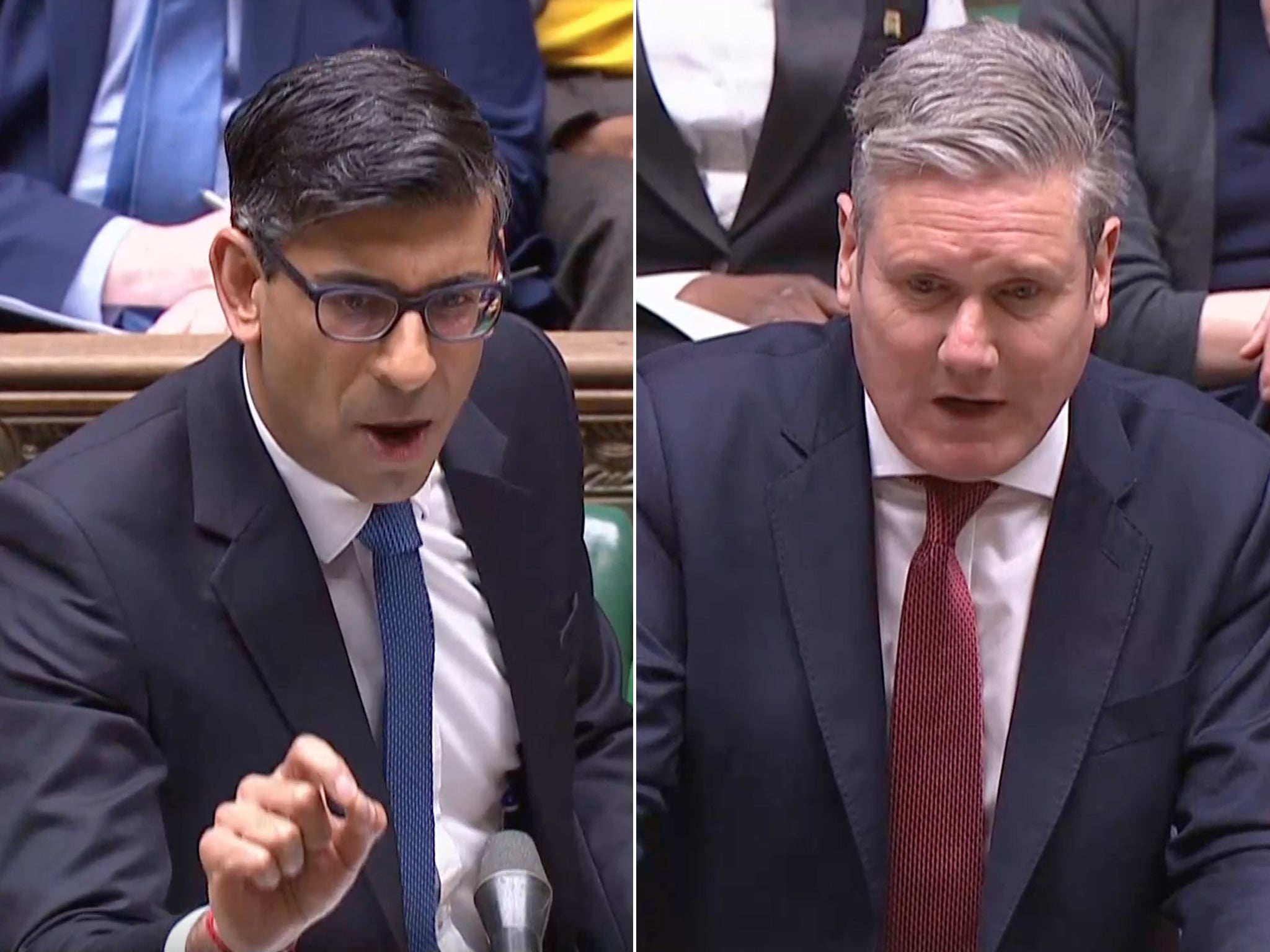Keir Starmer has got personal, attacking Rishi Sunak as a ‘tax avoider’ – it won’t work
The Labour leader tried to make an issue of the prime minister’s family wealth at Prime Minister’s Questions, writes John Rentoul


Keir Starmer was better at Prime Minister’s Questions than last week. He kept his questions short, apart from the last one, which is always a long recitation of all the bad things done by Conservative prime ministers back to Peel’s time. And he put on a better show of enjoying himself – which was his problem a week ago.
The Labour leader was helped by Rishi Sunak showing a touch of discomfort himself. With Starmer attacking him for protecting “his beloved non-dom status”, the prime minister said, “he talks about this non-dom thing”, and accused Starmer of having spent the supposed proceeds of abolishing non-dom status “on five different things”.
Starmer seemed delighted. “This non-dom thing,” he repeated. Having begun by accusing Sunak of being “clueless about life outside his bubble”, Starmer made his attack more personal, accusing the prime minister of “protecting a tax avoidance scheme that helped his own finances”.
Sunak started off on the high moral ground. “The facts are these,” he said. “The very wealthiest pay more tax and the poorest pay less tax today than in any year under the last Labour government.”
But then he decided to join Starmer in the swamp of personal attacks, accusing him of “rank hypocrisy” and repeating the attack from last week on Starmer’s “own special pension scheme” as director of public prosecutions, for which he required a law of his own.
Starmer batted that aside: “I’d scrap his pension giveaway whether it affected me or not. He refuses to scrap the non-dom status that benefits him and his family. I can see why he’s attracted to ‘this non-dom thing’.” It wasn’t edifying, but it was effective in the chamber.
It was striking that Starmer had more success with the personal attack on Sunak’s family for being rich than in his opening questions about economics. The Labour leader had started by quoting George Osborne, the Conservative former chancellor, who criticised the Tories for being “vandals”. Only he was referring – in his evidence to a House of Lords committee yesterday – to Kwasi Kwarteng and Liz Truss, the wreckers opposed by Sunak, to whom the Tory party had turned to try to repair the damage.
And Sunak was well prepared, as ever, deploying a quotation from Ed Balls, the Labour former shadow chancellor and the other half of the “Ed and George” double act. Balls had told the same committee that the British economy had faced four “once-in-a-century” shocks in recent years, and said: “The fact we’ve come through this is a triumph.”
No wonder Starmer preferred to keep it personal, referring to Sunak as “Mr 24 Tax Rises”, and saying: “He’s so out of touch he looks at a petrol pump and a debit card like they’ve just arrived from Mars.”
Sunak responded by accusing the Labour leader of “siding with” protesters, polluters and people smugglers, which is just as unedifying but not as personal.
I think the attacks on Sunak and his family are unwise, and even if they work in the Commons they won’t work with undecided voters. Non-dom status is a legitimate target, and it is true that Akshata Murty, Sunak’s wife, has benefited from it in the past, and the family could benefit from it in future. She has given up the current tax benefits of the status, opting to be taxed in the UK on her worldwide income, but there remains a big potential inheritance tax advantage.
But non-dom status was retained by the Labour government on the grounds, as Ed Balls explained in the 2015 election campaign, that Britain benefits from encouraging the global mobile rich to live and invest here.
And the focus-group evidence is that undecided voters tend to see Sunak’s wealth as reflecting well on him, while paradoxically regarding Starmer as a member of the privileged elite. Luke Tryl of More in Common once reported a group that thought the Labour leader’s knighthood was the equivalent of a hereditary peerage.
Starmer looked more comfortable at the despatch box today, but at the cost of lowering himself to personal attacks that are unlikely to be successful.






Join our commenting forum
Join thought-provoking conversations, follow other Independent readers and see their replies
Comments